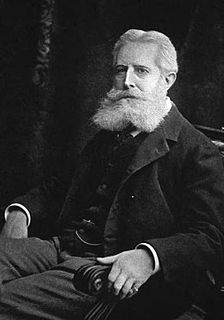Top 32 Quotes & Sayings by Edmund Clarence Stedman
Explore popular quotes and sayings by an American poet Edmund Clarence Stedman.
Last updated on April 21, 2025.
No, he was no such charlatan--
Count de Hoboken Flash-in-the-Pan--
Full of gasconade and bravado,
But a regular, rich Don Rataplane,
Santa Claus de la Muscavado,
Senor Grandissimo Bastinado!
His was the rental of half Havana
And all Matanzas; and Santa Ana,
Rich as he was, could hardly hold
A candle to light the mines of gold
Our Cuban owned.
No clouds are in the morning sky,
The vapors hug the stream,
Who says that life and love can die
In all this northern gleam?
At every turn the maples burn,
The quail is whistling free,
The partridge whirs, and the frosted burs
Are dropping for you and me.
Ho! hillyho! heigh O!
Hillyho!
In the clear October morning.























